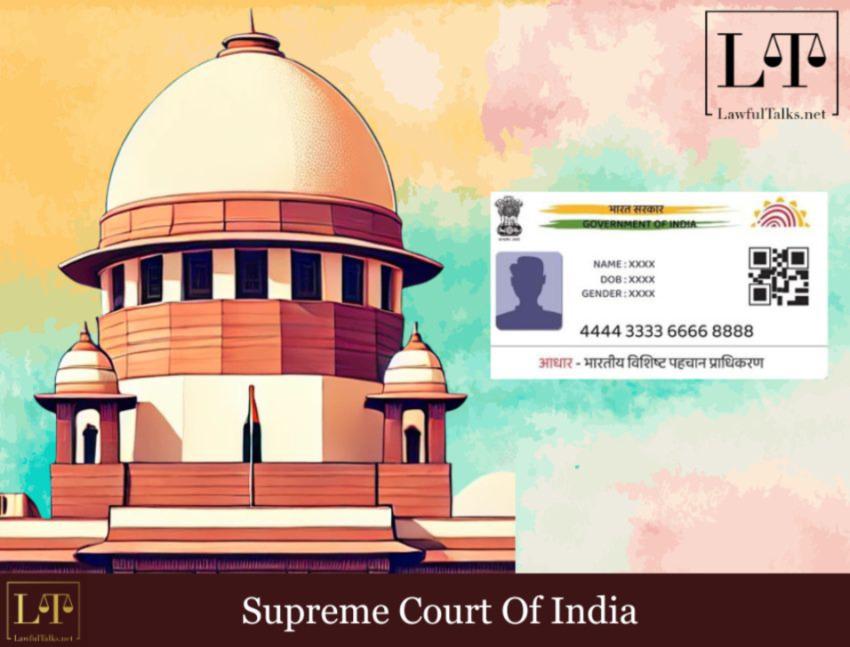Allahabad HC Sets Aside Afzal Ansari's Conviction, Allows Him to Continue as MP

A concerned bench of Justice Sudhanshu Dhulia and Justice Joymalya Bagchi of the Supreme Court sought answers from the Election Commission of India's (ECI) on its order of initiating a Special Intensive Revision just before the upcoming Bihar assembly elections.

The order, which requires voters to furnish documents of citizenship proof, complicates the process for citizens and raises serious concern about the ECI’s legal standing to authorize the same.
The bench was examining a group of petitions contesting the Election Commission of India’s (ECI) decision of June 24, ordering a Special Intensive Revision (SIR) under section 21(3) of the Representation of the People Act,1950.
Contesting the order, Senior Advocate Kapil Sibal, representing petitioner RJD MP Manoj Jha, argued that the ECI was unfairly shifting the responsibility of proving citizenship onto the voters. Additionally, he emphasized that several widely accepted documents, such as Aadhaar cards, Mahatma Gandhi National Rural Employment Guarantee Act 2005 (MNREGA) job cards, and ration cards, had been excluded from consideration by the ECI, complicating the process for many voters.
Justice Bagchi raised a critical question about the exclusion of Aadhaar, noting that even the documents accepted by the ECI do not inherently establish citizenship. He clarified that the determination of citizenship is fundamentally the responsibility of the Home Ministry, not the ECI. A further discussion prompted the bench to explore whether the issue of citizenship fell under the jurisdiction of the ECI at all.
As Senior Advocate Rakesh Dwivedi, representing the ECI, maintained that Aadhaar could serve for identity verification, Justice Bagchi countered by stating that such a determination relates to a different matter. The deliberations also veered toward the timing of the revision process, particularly given the imminent elections in Bihar scheduled for November.
Justice Dhulia expressed concern that the effort to review the electoral rolls so close to the elections could disenfranchise eligible voters.
Justice Bagchi pointed out the challenges of completing the SIR process efficiently, given that it is to be accomplished within a limited timeframe while ensuring that all eligible voters are accounted for.
Ultimately, the court directed the ECI to include Aadhaar, voter ID cards, and ration cards as acceptable documents for the upcoming Special Intensive Revision.
The matter is slated for further hearings on July 28, 2025.
Case Title: Association for Democratic Reforms and Ors. V. Election Commission of India and connected matters
Writ Petition Criminal No. 640/2025

Anam Sayyed
4th Year, Law Student
Latest Posts
Categories
- International News 19 Posts
- Supreme Court 352 Posts
- High Courts 366 Posts




























































































































































































































































































































































































































































































































































































































































































































































